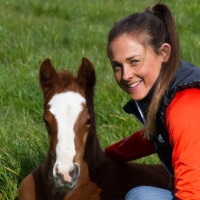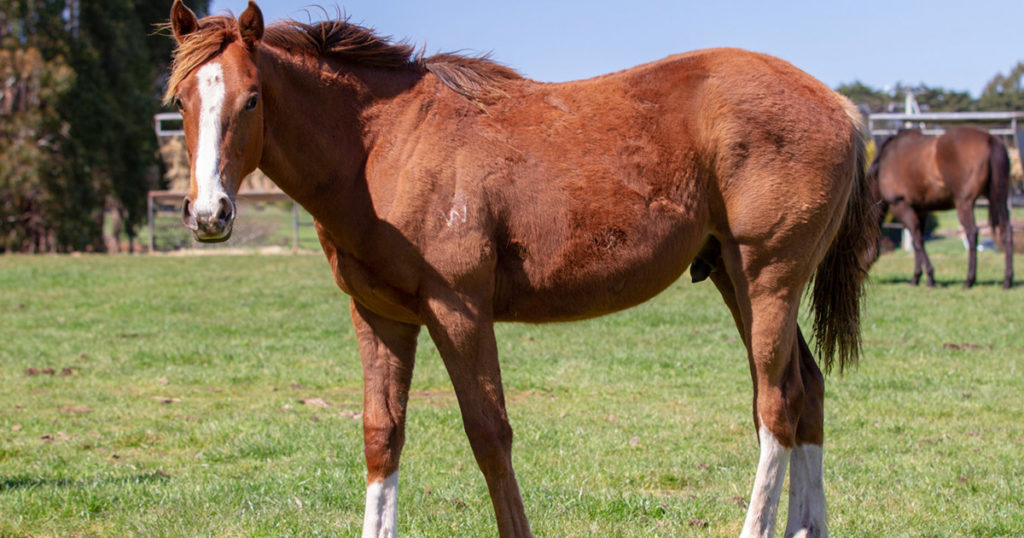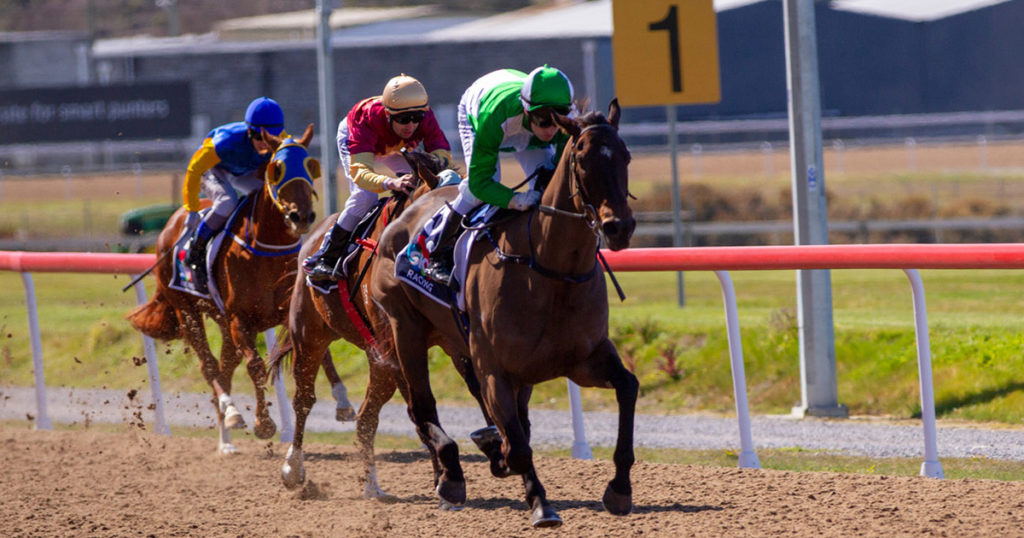When we have a horse who starts to exhibit nervy, spooky or irritable behaviour then one of the first things we commonly do is look at their diet. This is a terrific starting point, as nutrition plays a key role in our horse’s health and behaviour. But sometimes the way we look at their feed and the way we go about changing it can actually compound the problem.
Spooking, shying and anxiety in horses and ponies are some of the most common challenges we face from a behavioural aspect. When we have a horse or pony which is on edge, spooks at imaginary monsters and feels like they are a bomb under us just waiting to explode, we know something must be done. One of the easiest things for us to manipulate is their feed. We try eliminating things from their diet- often with mixed success. Maybe it helped? Maybe it didn’t. But because our horse possibly seemed quieter or less spooky, we’re not going to add back what we’ve already taken out. Surely they’re better off with less feed anyway and there can’t be any harm in reducing what we are giving them? We also tend to add a myriad of supplements- typically ‘calming’ ones. It’s easy to get to the point where we’re too scared to stop giving any of the supplements we’ve added in case it makes the problem worse. We can get to the stage where we are feeding very little actual feed and so many additives. Sadly, often our horse is no better off in terms of behaviour, and nutritionally is often left with deficits of important nutrients. Furthermore, we can be lacking a solid plan of action going forward in terms of properly feeding and nourishing our horse and addressing the cause of their behaviour.
We need to remember that anxious, spooking or edgy behaviour can be caused by many different things, not just feed. It’s important to consider the potential role of pain, social dynamics, poor fitting tack, the amount of work/exercise we are doing with our horses, their education, learned behaviour, environment and routine. As horsepeople, we also need to take the (challenging) step back and honestly ask ourselves what expectations we have of our horse, and what emotional state and frame of mind are we in? With the fast pace of life many of us lead, it is easy for us to be tense, uptight or in a rush, even when doing the things we love. Our horses instinctively sense this and it can influence the way they behave. The question needs to be posed if what we are asking our horse or pony to do is both clear and appropriate for their stage of development.
But if we focus back to the role of diet in anxious, spooking and edgy horses, one of the most common dietary problems which influence this behaviour is restricting/minimising protein intake, and in particular the amino acid lysine. It’s easy to think that eliminating protein rich feeds can only help a problem and not make it worse. Protein and protein rich foods are commonly blamed for fizzy and bad behaviour in our horses. Yet there is very little worthy evidence to substantiate this and good research to support the contrary.
Protein is made up of small molecules called amino acids. Amino acids and proteins are the building blocks of life. There are 21 amino acids required for a horse to make all the proteins it needs to function, grow and be in good health. Nine of these amino acids are deemed ‘essential’, that is they must be obtained through the diet. In a healthy horse, the remaining 21 amino acids can be produced by the body, even if they are not obtained directly through the food a horse eats. To read more about the role of protein in our horses’ diets, see the article The Importance of Protein.
One crucial essential amino acid in our horses’ and ponies’ diets is lysine. Different foods are comprised of different amino acids. It is important to remember that not all protein sources contain adequate balances of essential amino acids which our horses need for good health. The richest dietary source of lysine for horses and ponies is cooked soybean products. (To read more about soy in the equine diet, visit Soy: The Good, Bad and Confusing! Hay, grass and forages, grains, and beet pulp are all low in lysine. It’s easy for our horses’ diets to become low in lysine. Especially as soon as we start putting them on restrictive diets.
So how can a restrictive diet, low in lysine affect our horses’ behaviour? Through multiple mechanisms! Studies have shown lysine to reduce stress-induced anxiety and to reduce levels of the stress hormone cortisol. Lysine is also needed to facilitate proper calcium absorption. Calcium plays a key role in the function and release of neurotransmitters (natural chemical messengers which influence mood, temperament, learning and behaviour). Insufficient lysine in the diet can interfere with proper neurotransmitter signalling, which can be exhibited as anxiety. Lysine also plays a key role in normal serotonin production and function. Serotonin is a mood-stabilising neurotransmitter and helps our horses to feel calm, happy and relaxed.
It’s important to remember that we don’t always see an immediate or direct correlation between removal or addition of a nutrient in the diet and behavioural changes. It can take some time for effects to be noticed. In the case of lysine, it’s a nutrient which plays many key roles in the body and insufficient amounts affect many body systems. It plays a crucial role in immune function and collagen structure (needed for healthy muscles, bones, tendons, ligaments, skin and hooves). The longer a horse has a low lysine diet, the more the effects compound systemically.
Our horses’ and ponies’ diets can have profound influences on their overall health, performance, ability to recover, mood and behaviour. It can be tempting to look for a quick fix to our horses’ behavioural issues, yet it is easy to unknowingly compromise their long-term health when doing this. Correctly identifying the contributing cause(s) of fizzy behaviour and addressing them in the most appropriate way(s) is essential to ensure we are doing the best for our equines. Getting professional help to identify potential dietary causes of poor behaviour in horses can pay dividends not only in terms of behaviour, but also in terms of their long-term health and performance.

Camilla Whishaw is a highly regarded, experienced horsewoman and naturopath, helping to holistically treat and manage a broad range of equine health conditions and injuries, with a passion for mare and stallion fertility.
As a world-renowned practitioner, presenter, author, and consultant in the field of Equine Naturopathy, Camilla shares her knowledge through keynote presentations, interviews, lectures, panel sessions, and workshop training.





